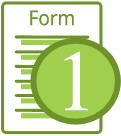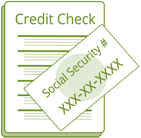January 5, 2012 (Jeff Alan)
Monthly default rates on first mortgages rose for the third consecutive month in November helping to push the S&P/Experian Consumer Credit Default Indices up to 2.22 percent from 2.15 percent in October.
Default rates on first mortgages increased from 2.08 percent in October to 2.17 percent in November, while default rates on second mortgages declined from 1.29 percent in October to 1.26 percent in November.
Mortgage default rates have been steadily declining since 2009 when second mortgage default rates peaked at 4.66 percent in March, followed several months later by first mortgage defaults which peaked at 5.67 percent in August, however, while default rates on second mortgages have continued to decline, default rates on first mortgages have increased for the past three months.
Default rates on auto loans improved in November with rates decreasing slightly to 1.17 percent in November, down from 1.22 percent in October, while default rates on bank cards increased from 4.85 percent in October to 4.91 percent in November.
David M. Blitzer, Managing Director and Chairman of the Index Committee for S&P Indices, stated, “As we indicated last month, the weight of first mortgage default rates tends to drive the trend in the national composite. First mortgage default rates rose for the third consecutive month, leading the same pattern for the composite. Since August, first mortgage default rates have risen from 1.92% to the 2.17% November rate, or 0.25 percentage points. The composite has also risen in each of those three months, from 2.04% to 2.22%. These figures are not too surprising given some of the weak housing statistics we have seen over the past few months. Three of the five Metropolitan Statistical Areas (MSAs) posted increases in their month-over-month default rates in stark contrast to last month when four out of the five MSAs posted declines in their default rates.”
All five of the MSAs posted increases in default rates in the monthly Indices with Los Angeles posting the largest default rate increase, moving up 0.38 percentage points to 2.53 percent in November from 2.15 percent in October. In November 2010, the default rate in Los Angeles was 3.26 percent.
Miami posted the second largest increase, rising 0.31 percentage points to 4.47 percent in November from 4.16 percent in October but down from 10.27 percent a year earlier. The default rate in Chicago increased by 0.20 percentage points to 2.84 percent in November from 2.64 percent in October and was also down from a year earlier when the default rate stood at 3.34 percent.
The bottom two positions were held by New York and Dallas with New York reporting an increase of 0.12 percentage points, rising from 2.09 percent in October to 2.21 percent in November, but still down from 3.04 percent a year earlier and Dallas had the smallest increase in the default rate, increasing 0.08 percentage points to 1.38 percent in November compared to 1.30 percent in October. In November of 2010 the default rate in Dallas was also the lowest of the 5 MSAs at 2.20 percent.
Although not welcomed, the increase in mortgage defaults was expected. TransUnion previously predicted a rise in mortgage delinquencies was expected to last at least through the first quarter of 2012 and mortgage giant Freddie Mac recently reported that delinquencies have been on the increase over the previous three months.
Tags: S&P, Experian, Consumer Credit Default Indices, mortgage default rates, auto loan default rates, bank card default rates
Source:
S&P/Experian




